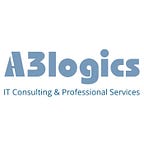EDI has been an essential resource for healthcare sector due to frequent information exchange. The more times data be exchanged, the more risk of data loss would be there. Considering the case of healthcare insurance here because it is the only sector other than banking which has a risk of fraud depends upon the validation of information.
It is observed that the scale of business plays a big role on the inclusion of EDI.
The larger the business is, the easier the inclusion of EDI managed services is seen. Smaller businesses are found requiring EDI support from the larger suppliers. Also, they find EDI deployment a bit costlier for them, therefore, are provided technical support in the form of EDI portal i.e. called Web EDI.
However, larger businesses deploy EDI within their businesses i.e. called classic EDI deployment. It is costly at the time of deployment but saves a lot on documentation later on especially for larger businesses.
Let us see how Classic EDI differs from WEB EDI and enhance knowledge about things we should know about EDI before starting with it.
Classic EDI vs. WEB EDI
- Classic EDI is better because enjoyment of complete automation is possible only in this case. WED EDI does not allow all the functionalities that we may get otherwise.
- The basic meaning of Classic EDI says for exchanging the documents with proper EDI resources i.e. EDI Standards, appropriate syntax and semantics defined by the ANSI.
- However, a web based EDI is just conduction of EDI services through internet browser rather using EDI standard pathways.
- WED EDI is susceptible to human error whereas, Classic EDI is aimed to reduce possible human errors.
- WEB EDI is time consuming as it is arranged somehow to fulfil the purpose of EDI through non-traditional means. Whereas, Classic EDI is a bit costlier at the beginning but saves time as well as money both throughout the operations ahead of time.
- Yes, WEB EDI renders adequate safety through EDI channel, but hinders the business growth in overall. However, Classic EDI improves data visibility and allows deeper ERP integration.
Switching into any of those from any of them would depend on two factors i.e. Money and Volume of information exchange. In short, WEB EDI is better for small volume and lower scale businesses. However, it is advisable to deploy EDI for larger scale businesses with enormous volume of data exchange.
If you are a supplier and looking to migrate into fully automated EDI, hiring A3logics for EDI outsourcing would be a worthwhile investment. There are other EDI services available like EDI VAN, Mobile EDI, and EDI 834 that are the most in-demand ones especially in the healthcare industry.
Make sure you don’t miss to check on the important factors regarding EDI healthcare before getting into a business with EDI.
